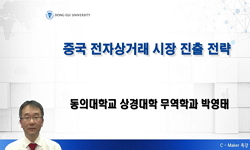In this article, we analyze the current Korean taxation scheme and regulations on e-Commerce transactions from income tax and value added tax (VAT) aspects and develop suggestions on how to modify or change income tax laws and VAT laws in coping with ...
http://chineseinput.net/에서 pinyin(병음)방식으로 중국어를 변환할 수 있습니다.
변환된 중국어를 복사하여 사용하시면 됩니다.
- 中文 을 입력하시려면 zhongwen을 입력하시고 space를누르시면됩니다.
- 北京 을 입력하시려면 beijing을 입력하시고 space를 누르시면 됩니다.
https://www.riss.kr/link?id=A99845957
- 저자
- 발행기관
- 학술지명
- 권호사항
-
발행연도
2003
-
작성언어
Korean
- 주제어
-
KDC
325.9
-
등재정보
KCI등재
-
자료형태
학술저널
- 발행기관 URL
-
수록면
323-353(31쪽)
- 제공처
-
0
상세조회 -
0
다운로드
부가정보
다국어 초록 (Multilingual Abstract)
Under the current Local Tax Law, when a corporation has business places in two or more cities/counties, the resident tax on income shall be allocated to each local government having jurisdiction over each business place based on the two allocation key; number of employees and size of office spaces. However, in order to allocate resident taxes to each local government properly in corresponding to contribution of each local government for generating profits of the Company, it is recommended to consider the following three factors at least for allocating resident taxes on income; sales amount in the local government area, amount of salary and wages for employees working in the area and value of assets used in the area. And also, the current Resident Tax Law has no clear regulations on allocation of resident taxes on income for the case where an individual (not a corporation) does businesses with business places over two or more cities/counties. The regulations for allocation of resident taxes on income in case of individual entrepreneurs having business places over two or more cities/countries will be needed to be in place in the said law.
In regards to cross-boarder e-Commerce transactions, it is recommended to modify, establish or revise the clauses on definition of domestic source income in the Corporate Income Tax Laws and Individual Income Tax Laws in the following area.
(1) Business income: ① Inclusion and clarification of range and definition of domestic source income on IT business, communication and telecom business, services rendered through electronic equipments such as internet, ② Classification of income and definition of domestic source income on digital products and services provided through electronic devices, ③ Tax treatments method on charging management fees or allocating head office expenses to overseas affiliated entities by a regional headquarter of a multinational company located in Korea, ④ Modification of the definition of the key factors constituting a permanent establishment, particularly regarding to transactions accompanying inventories, ⑤ Complementing and clarifying the method on how to calculate domestic source income in case that relevant activities for IT business, telecommunication business, are performed over two or more countries.
(2) Personal Service income: ① Excluding the fees for personal services performed overseas and used in Korea from Korean source income, ② Modification and addition of detailed scopes and kinds of personal services in order to keep pace with changes in environments of increasing e-commerce transactions, ③ Establishing detailed guidelines on how to classify incomes between royalties income, personal service income and business income, ④ Research on propriety of withholding rate on personal service income which will be applied when the personal service income falls into the category of domestic source income but the recipient has no permanent establishment in Korea, ⑤ Clarification on how to calculate the tax base for personal service incomes which should be reported through filing income tax returns.
(3) Royalty income: ① Reclassification of compensation for transferring industrial, commercial and scientific equipments from royalty income to business income, ② Regulation on how to classify compensation for digital products and services, ③ Research on propriety of withholding rate on royalty income, ④ Clarification on deductible expenses incurred by the head office in determining tax base for royalty income in case of being attributable to a permanent establishment in Korea.
In regards to definition of a permanent establishment, modification and redefinition of the factors constituting a permanent establishment in corresponding to e-commerce environment should be made in revision of the tax laws.
This thesis also studies on consumption tax issues raised in the environment of e-Commerce transactions. The Korean VAT Laws should be updated for e-Commerce transactions in the following areas: ① Taxation right for VAT on services should be determined based on place of consumption instead of place of supply, ② When the VAT law is revised to impose VAT on importation of services, special concern should be given to developing schemes and procedures for taxation on B2C transactions, ③ Classification of digital products and services between VAT-exempted transactions and VAT leviable transactions should be established clearly and concretely.
In this article, we analyze the current Korean taxation scheme and regulations on e-Commerce transactions from income tax and value added tax (VAT) aspects and develop suggestions on how to modify or change income tax laws and VAT laws in coping with increasing e-Commerce transactions.
Under the current Local Tax Law, when a corporation has business places in two or more cities/counties, the resident tax on income shall be allocated to each local government having jurisdiction over each business place based on the two allocation key; number of employees and size of office spaces. However, in order to allocate resident taxes to each local government properly in corresponding to contribution of each local government for generating profits of the Company, it is recommended to consider the following three factors at least for allocating resident taxes on income; sales amount in the local government area, amount of salary and wages for employees working in the area and value of assets used in the area. And also, the current Resident Tax Law has no clear regulations on allocation of resident taxes on income for the case where an individual (not a corporation) does businesses with business places over two or more cities/counties. The regulations for allocation of resident taxes on income in case of individual entrepreneurs having business places over two or more cities/countries will be needed to be in place in the said law.
In regards to cross-boarder e-Commerce transactions, it is recommended to modify, establish or revise the clauses on definition of domestic source income in the Corporate Income Tax Laws and Individual Income Tax Laws in the following area.
(1) Business income: ① Inclusion and clarification of range and definition of domestic source income on IT business, communication and telecom business, services rendered through electronic equipments such as internet, ② Classification of income and definition of domestic source income on digital products and services provided through electronic devices, ③ Tax treatments method on charging management fees or allocating head office expenses to overseas affiliated entities by a regional headquarter of a multinational company located in Korea, ④ Modification of the definition of the key factors constituting a permanent establishment, particularly regarding to transactions accompanying inventories, ⑤ Complementing and clarifying the method on how to calculate domestic source income in case that relevant activities for IT business, telecommunication business, are performed over two or more countries.
(2) Personal Service income: ① Excluding the fees for personal services performed overseas and used in Korea from Korean source income, ② Modification and addition of detailed scopes and kinds of personal services in order to keep pace with changes in environments of increasing e-commerce transactions, ③ Establishing detailed guidelines on how to classify incomes between royalties income, personal service income and business income, ④ Research on propriety of withholding rate on personal service income which will be applied when the personal service income falls into the category of domestic source income but the recipient has no permanent establishment in Korea, ⑤ Clarification on how to calculate the tax base for personal service incomes which should be reported through filing income tax returns.
(3) Royalty income: ① Reclassification of compensation for transferring industrial, commercial and scientific equipments from royalty income to business income, ② Regulation on how to classify compensation for digital products and services, ③ Research on propriety of withholding rate on royalty income, ④ Clarification on deductible expenses incurred by the head office in determining tax base for royalty income in case of being attributable to a permanent establishment in Korea.
In regards to definition of a permanent establishment, modification and redefinition of the factors constituting a permanent establishment in corresponding to e-commerce environment should be made in revision of the tax laws.
This thesis also studies on consumption tax issues raised in the environment of e-Commerce transactions. The Korean VAT Laws should be updated for e-Commerce transactions in the following areas: ① Taxation right for VAT on services should be determined based on place of consumption instead of place of supply, ② When the VAT law is revised to impose VAT on importation of services, special concern should be given to developing schemes and procedures for taxation on B2C transactions, ③ Classification of digital products and services between VAT-exempted transactions and VAT leviable transactions should be established clearly and concretely.
국문 초록 (Abstract)
현행 지방세법에서는 법인이 2 이상의 시․군에 사업장을 갖고 있는 경우 종업원 수 및 건축물 면적기준으로 법인세할 주민세를 배부하도록 규정하고 있으나, 배부기준에 매출액 요소․급여액 요소․사용자산 요소를 복합적으로 반영하여야 할 것이다. 그리고 현행 지방세법은 법인이 2 이상의 시․군에 사업장을 갖는 경우의 주민세 배부에 대하여만 규정하고 있다. 따라서 개인이 2이상의 시․군에 사업장을 갖는 경우에 있어 주민세 배부에 대한 규정의 보완 제정이 필요하다.
국내원천소득 및 고정사업장에 관한 현행 법인세법 및 관련 행정규정의 개정보완이 필요하다. 사업소득과 관련해서는, IT산업․정보통신업 및 인적용역소득으로 구분되지 않은 서비스업에 대한 국내원천소득의 범위명시, 디지털제품 및 서비스 제공에 관한 과세방침의 명확화, 지역관리본부 등이 본사 및 그룹 본부를 위하여 용역을 제공하고 받는 용역대가에 대한 국내 원천소득 규정의 명시, 전자상거래 환경 하에서의 재고자산 거래에 대한 국내원천소득 판정요건의 보완 및 개선, 전자상거래 환경 하에서의 국내원천소득계산방법에 대한 명확하고 구체적인 규정화가 필요하다. 인적용역소득과 관련해서는 국내원천소득 결정시 이용지국 과세주의의 삭제, 전자상거래환경에 부합하도록 인적용역소득 범위의 추가적 열거, 사업소득, 사용료 소득과의 구분 방법의 구체적 명시, 인적용역소득에 대한 원천징수 세율의 적정성 검토 및 국내원천소득계산방법에 대한 명확하고 구체적인 규정화가 필요하다. 사용료소득과 관련해서는 산업상, 상업상 또는 과학상 장비 등의 양도대가를 사용료소득에서 제외하고 사업소득으로 구분, 디지털제품 및 서비스 제공과 관련하여 발생된 소득에 대한 소득 구분 방법의 구체적 명시화, 원천징수세율의 적정성검토 및 국내원천소득계산 방법의 구체적 명시화가 필요하다. 국내 고정사업장과 관련해서는 전자상거래에 부합하는 고정사업장 개념의 정비보완, 고정사업장 범위에 관리장소 추가가 필요하다.
전자상거래 소비세 과세문제와 관련해서는 다음 사항에 대해서는 시급히 개선되어야 할 것이다. 첫째, 서비스에 대한 부가가치세법의 공급지 과세원칙을 소비지 과세원칙으로 변경하여야 한다. 둘째, 서비스의 수입에 대하여 부가가치세 과세로 개정한다면, B2C 거래에 대한 과세방안을 마련해야 할 것이다. 셋째, 디지털 재화나 서비스에 대하여 부가가치세 과세․면세 구분을 명확히 해야 할 것이다.
본 연구에서는 전자상거래의 과세문제에 대하여 소득세와 소비세를 중심으로 국내세법규정의 문제점과 개선방안을 검토하였다. 현행 지방세법에서는 법인이 2 이상의 시․군에 사업장을 ...
본 연구에서는 전자상거래의 과세문제에 대하여 소득세와 소비세를 중심으로 국내세법규정의 문제점과 개선방안을 검토하였다.
현행 지방세법에서는 법인이 2 이상의 시․군에 사업장을 갖고 있는 경우 종업원 수 및 건축물 면적기준으로 법인세할 주민세를 배부하도록 규정하고 있으나, 배부기준에 매출액 요소․급여액 요소․사용자산 요소를 복합적으로 반영하여야 할 것이다. 그리고 현행 지방세법은 법인이 2 이상의 시․군에 사업장을 갖는 경우의 주민세 배부에 대하여만 규정하고 있다. 따라서 개인이 2이상의 시․군에 사업장을 갖는 경우에 있어 주민세 배부에 대한 규정의 보완 제정이 필요하다.
국내원천소득 및 고정사업장에 관한 현행 법인세법 및 관련 행정규정의 개정보완이 필요하다. 사업소득과 관련해서는, IT산업․정보통신업 및 인적용역소득으로 구분되지 않은 서비스업에 대한 국내원천소득의 범위명시, 디지털제품 및 서비스 제공에 관한 과세방침의 명확화, 지역관리본부 등이 본사 및 그룹 본부를 위하여 용역을 제공하고 받는 용역대가에 대한 국내 원천소득 규정의 명시, 전자상거래 환경 하에서의 재고자산 거래에 대한 국내원천소득 판정요건의 보완 및 개선, 전자상거래 환경 하에서의 국내원천소득계산방법에 대한 명확하고 구체적인 규정화가 필요하다. 인적용역소득과 관련해서는 국내원천소득 결정시 이용지국 과세주의의 삭제, 전자상거래환경에 부합하도록 인적용역소득 범위의 추가적 열거, 사업소득, 사용료 소득과의 구분 방법의 구체적 명시, 인적용역소득에 대한 원천징수 세율의 적정성 검토 및 국내원천소득계산방법에 대한 명확하고 구체적인 규정화가 필요하다. 사용료소득과 관련해서는 산업상, 상업상 또는 과학상 장비 등의 양도대가를 사용료소득에서 제외하고 사업소득으로 구분, 디지털제품 및 서비스 제공과 관련하여 발생된 소득에 대한 소득 구분 방법의 구체적 명시화, 원천징수세율의 적정성검토 및 국내원천소득계산 방법의 구체적 명시화가 필요하다. 국내 고정사업장과 관련해서는 전자상거래에 부합하는 고정사업장 개념의 정비보완, 고정사업장 범위에 관리장소 추가가 필요하다.
전자상거래 소비세 과세문제와 관련해서는 다음 사항에 대해서는 시급히 개선되어야 할 것이다. 첫째, 서비스에 대한 부가가치세법의 공급지 과세원칙을 소비지 과세원칙으로 변경하여야 한다. 둘째, 서비스의 수입에 대하여 부가가치세 과세로 개정한다면, B2C 거래에 대한 과세방안을 마련해야 할 것이다. 셋째, 디지털 재화나 서비스에 대하여 부가가치세 과세․면세 구분을 명확히 해야 할 것이다.
목차 (Table of Contents)
- Ⅰ. 서론
- Ⅱ. 국내 전자상거래에 대한 소득세 과세문제
- Ⅲ. 국제 전자상거래에 대한 소득세 과세문제
- Ⅳ. 국제 전자상거래에 대한 소비세 과세관할
- Ⅴ. 국제 전자상거래에 대한 소비세 과세모형
- Ⅰ. 서론
- Ⅱ. 국내 전자상거래에 대한 소득세 과세문제
- Ⅲ. 국제 전자상거래에 대한 소득세 과세문제
- Ⅳ. 국제 전자상거래에 대한 소비세 과세관할
- Ⅴ. 국제 전자상거래에 대한 소비세 과세모형
- Ⅵ. 결론 및 정책시사점
동일학술지(권/호) 다른 논문
-
- 韓國公認會計士會
- 이화진
- 2003
- KCI등재
-
- 韓國公認會計士會
- 이명곤
- 2003
- KCI등재
-
- 韓國公認會計士會
- 이세용
- 2003
- KCI등재
-
- 韓國公認會計士會
- 조현연
- 2003
- KCI등재





 RISS
RISS






